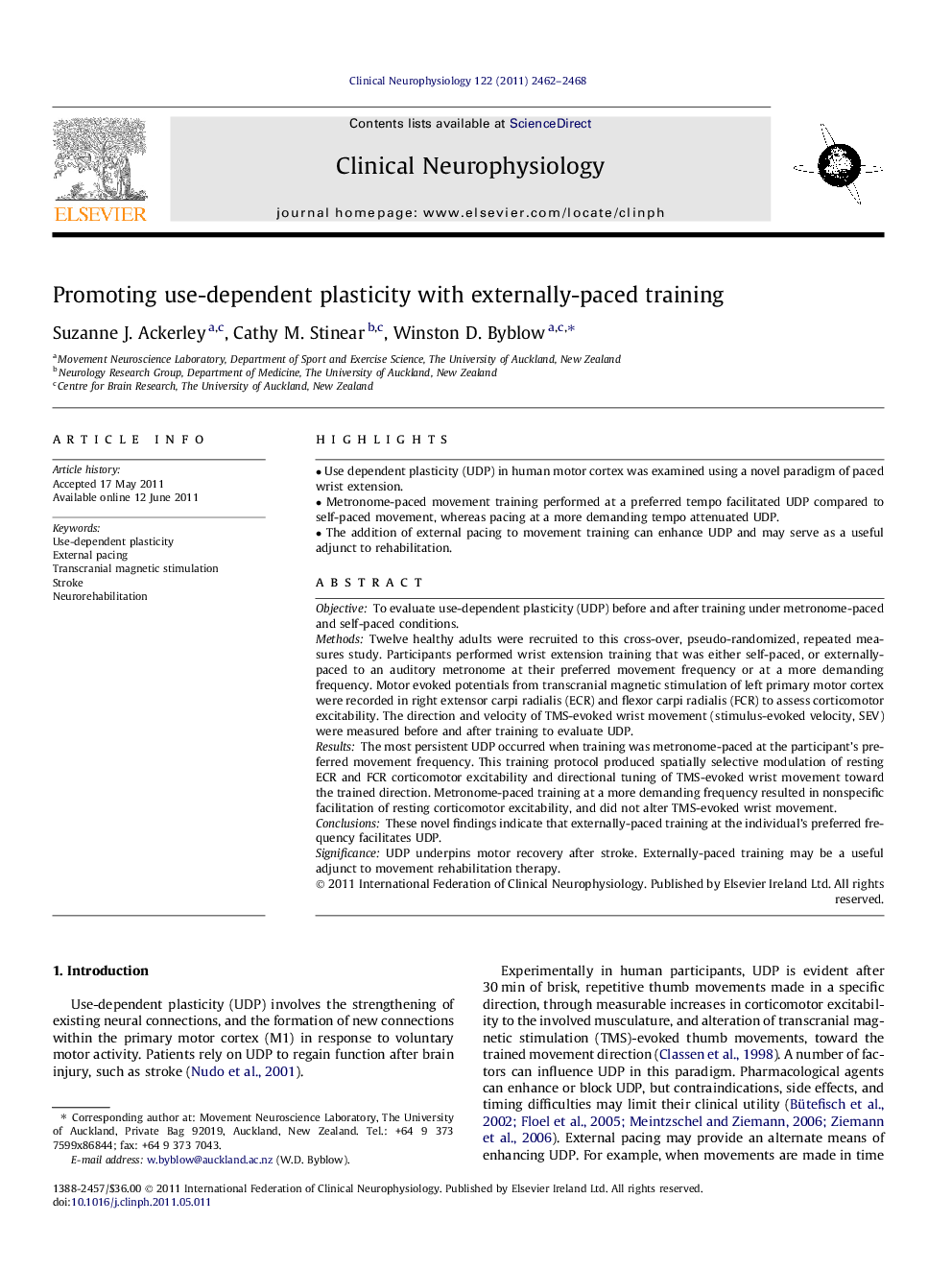| Article ID | Journal | Published Year | Pages | File Type |
|---|---|---|---|---|
| 3043983 | Clinical Neurophysiology | 2011 | 7 Pages |
ObjectiveTo evaluate use-dependent plasticity (UDP) before and after training under metronome-paced and self-paced conditions.MethodsTwelve healthy adults were recruited to this cross-over, pseudo-randomized, repeated measures study. Participants performed wrist extension training that was either self-paced, or externally-paced to an auditory metronome at their preferred movement frequency or at a more demanding frequency. Motor evoked potentials from transcranial magnetic stimulation of left primary motor cortex were recorded in right extensor carpi radialis (ECR) and flexor carpi radialis (FCR) to assess corticomotor excitability. The direction and velocity of TMS-evoked wrist movement (stimulus-evoked velocity, SEV) were measured before and after training to evaluate UDP.ResultsThe most persistent UDP occurred when training was metronome-paced at the participant’s preferred movement frequency. This training protocol produced spatially selective modulation of resting ECR and FCR corticomotor excitability and directional tuning of TMS-evoked wrist movement toward the trained direction. Metronome-paced training at a more demanding frequency resulted in nonspecific facilitation of resting corticomotor excitability, and did not alter TMS-evoked wrist movement.ConclusionsThese novel findings indicate that externally-paced training at the individual’s preferred frequency facilitates UDP.SignificanceUDP underpins motor recovery after stroke. Externally-paced training may be a useful adjunct to movement rehabilitation therapy.
► Use dependent plasticity (UDP) in human motor cortex was examined using a novel paradigm of paced wrist extension. ► Metronome-paced movement training performed at a preferred tempo facilitated UDP compared to self-paced movement, whereas pacing at a more demanding tempo attenuated UDP. ► The addition of external pacing to movement training can enhance UDP and may serve as a useful adjunct to rehabilitation.
